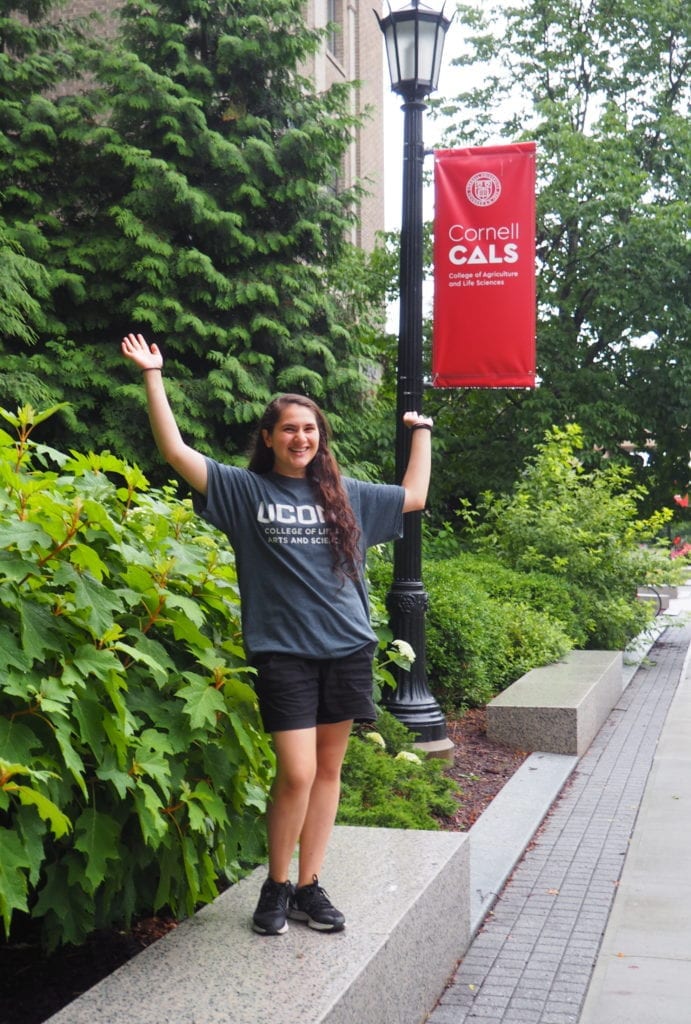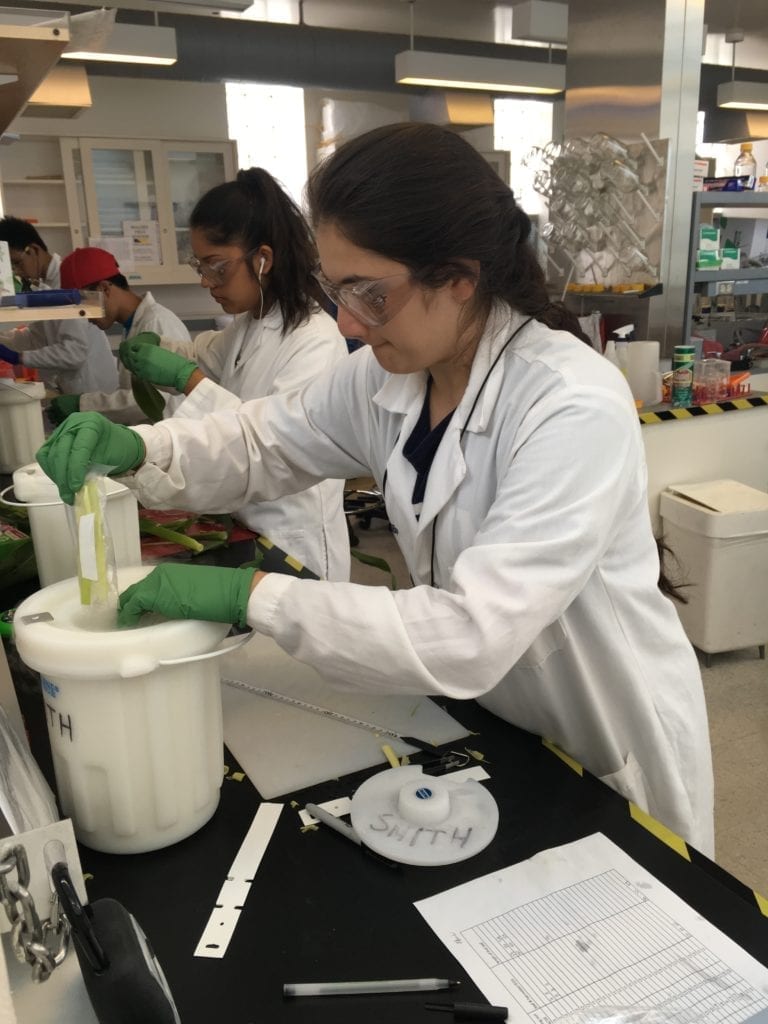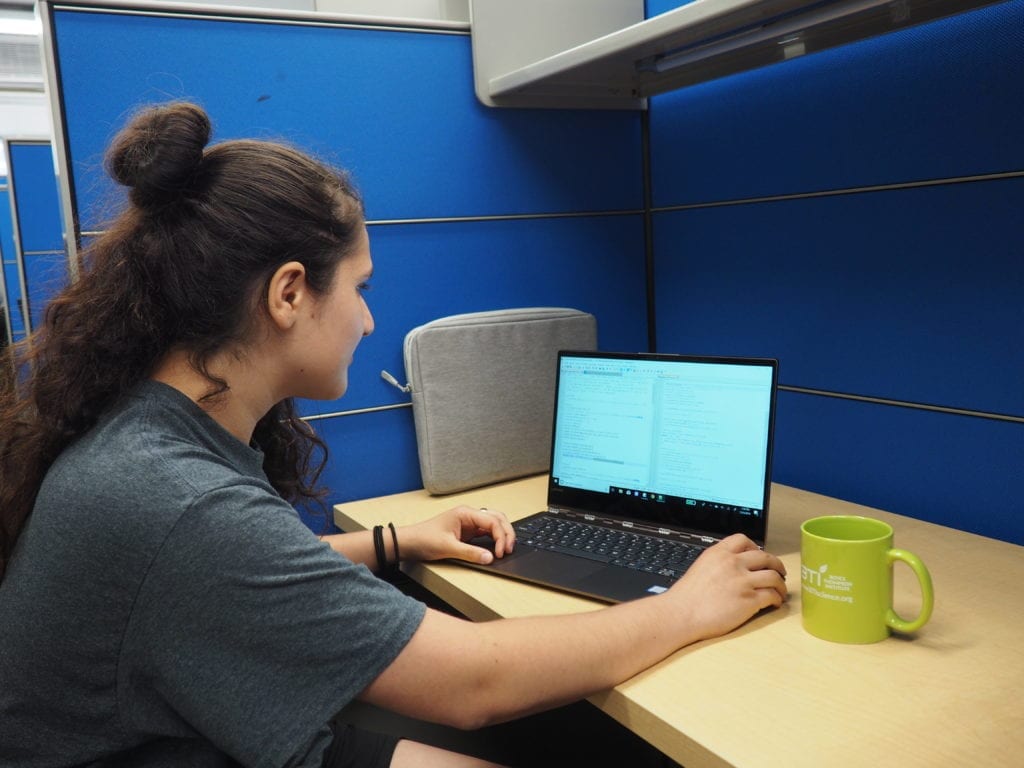News
A Future in Food Security: A Spotlight of Akriti Bhattarai
Coming from Connecticut to New York for the summer may not seem too far, but it can still be incredibly impactful. This was the case for Akriti Bhattarai, who is participating in the Plant Genome Research Program (PGRP) Internship this summer. Her goals and passions for her future (and, incidentally, the future of millions around the world) have been solidified this summer by some of the world’s top researchers in her field.
Akriti was lucky to discover her passion in high school: to research plants and improve food security. Since then she’s taken every opportunity she can to follow this passion, with the hopes of making the world a better place through research.
“My goal is to stay in academic research and get my PhD. I want to utilize statistics, bioinformatics, and plant science to improve nutrition and yield in plants.”
As a Biological Sciences major and statistics minor at the University of Connecticut, Akriti was excited to combine her love of plants with her love of statistics for a real-life purpose this summer. Under her mentor Meng Lin, she is using gene expression data to better understand how plants retain water in the midst of a drought.
“With a rising population and changing climate, increasing drought tolerance by creating new varieties in the future will really help people and save lives,” said Akriti.
To achieve this goal, the Gore Lab of the Cornell School of Integrative Plant Science (SIPS) is working to better understand a part of the plant many people don’t know about: the cuticle. This structure covers the plant’s leaves and often feels smooth and waxy to the touch. Its main jobs are to prevent water from leaching out of the plant and to protect the plant from pathogens.
“In drought conditions, a lot of water is lost through the plant leaves. If we understand cuticle development and how it relates genetically to evaporation rates, we may be able to increase drought tolerance,” said Akriti. “This project is focused on Maize, which is a great place to start because it’s a really important crop internationally, and it’s crucial for the global economy.
Only a few weeks into her summer, Akriti boarded a plane with her mentor and headed out to San Diego to collect leaf parts from their field trial plants for testing—what some may see as “leaf surgery.”
Akriti recounts how scientific (and fun!) the process really was:
“We only collected the leaves that were in the process of developing the cuticle so that we could capture the expression of genes involved in cuticle development. You also only need a certain section of the leaf, so we had to cut the leaves up in the field station. It could only be done during a certain part of the day because gene expression is variable throughout the day, so we’d go in as fast as we could and we’d dissect the leaf. Then, we’d dunk them in liquid nitrogen to freeze them – that was my favorite part!”
Meng and Akriti froze these leaf sections using the facilities of their project partner, the Smith Lab of the University of California at San Diego. They then brought the samples back to Cornell for future sequencing and genetic testing.
Another highlight of Akriti’s summer was the opportunity to learn more about a topic she hopes to study at school: bioinformatics.
“Bioinformatics is going to be huge going forward in research,” said Akriti. “I was lucky to learn about the field early, but this summer has reinforced just how important it will be going forward. I love that people are starting to catch on to that.”
Even though Akriti is already working toward a minor in Statistics at school, she knows there is always more to learn when you’re working with real research questions. “This summer is my first time working with R, the statistical software, so there was definitely a learning curve at the beginning,” she said. “I knew some basic R commands, but now I have something very applicable. I’ve gotten to take it to an entirely different level.”
Despite Akriti’s clear academic path since high school, this summer still offered her advice, skills, and more empowerment for her future work.
“Eventually, I want to do research related to improving yield, nutritional quality, and resistance to stressors to improve food security, so this project was a perfect fit for me,” she said. “This whole summer has actually been huge for me. Being around people with my goals has been amazing!”
When asked how Ithaca compared to Mansfield, the home of UConn, Akriti noted: “People think Ithaca is in the middle of nowhere, but UConn is in the middle of nowhere. Compared to where I come from, there’s a lot more to do here than people think! Plus, there’s a gorge right outside my window!”
Despite the differences between the towns, Ithaca still feels like home for Akriti.
“Overall, they’re pretty similar: people study and see the cows.”





